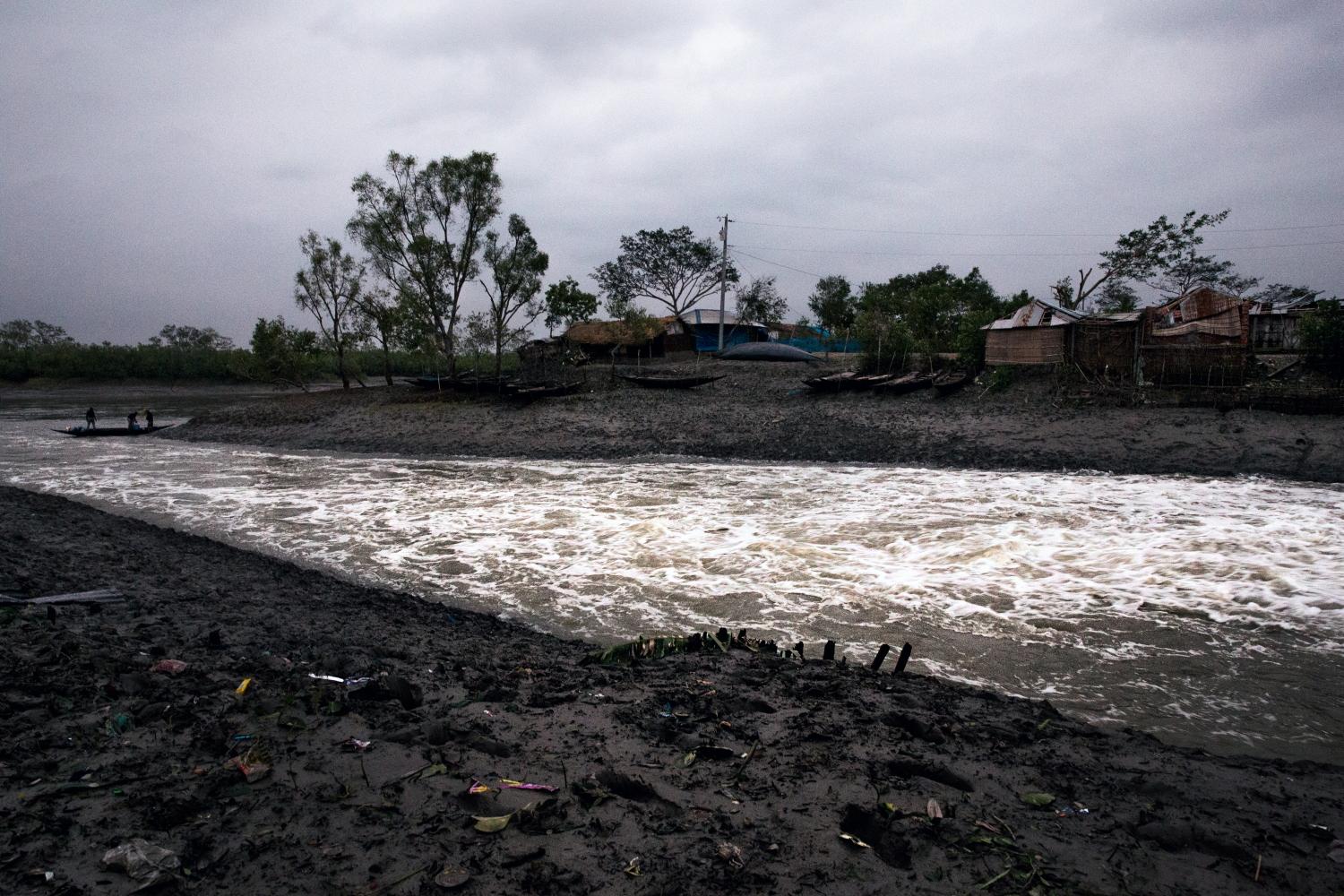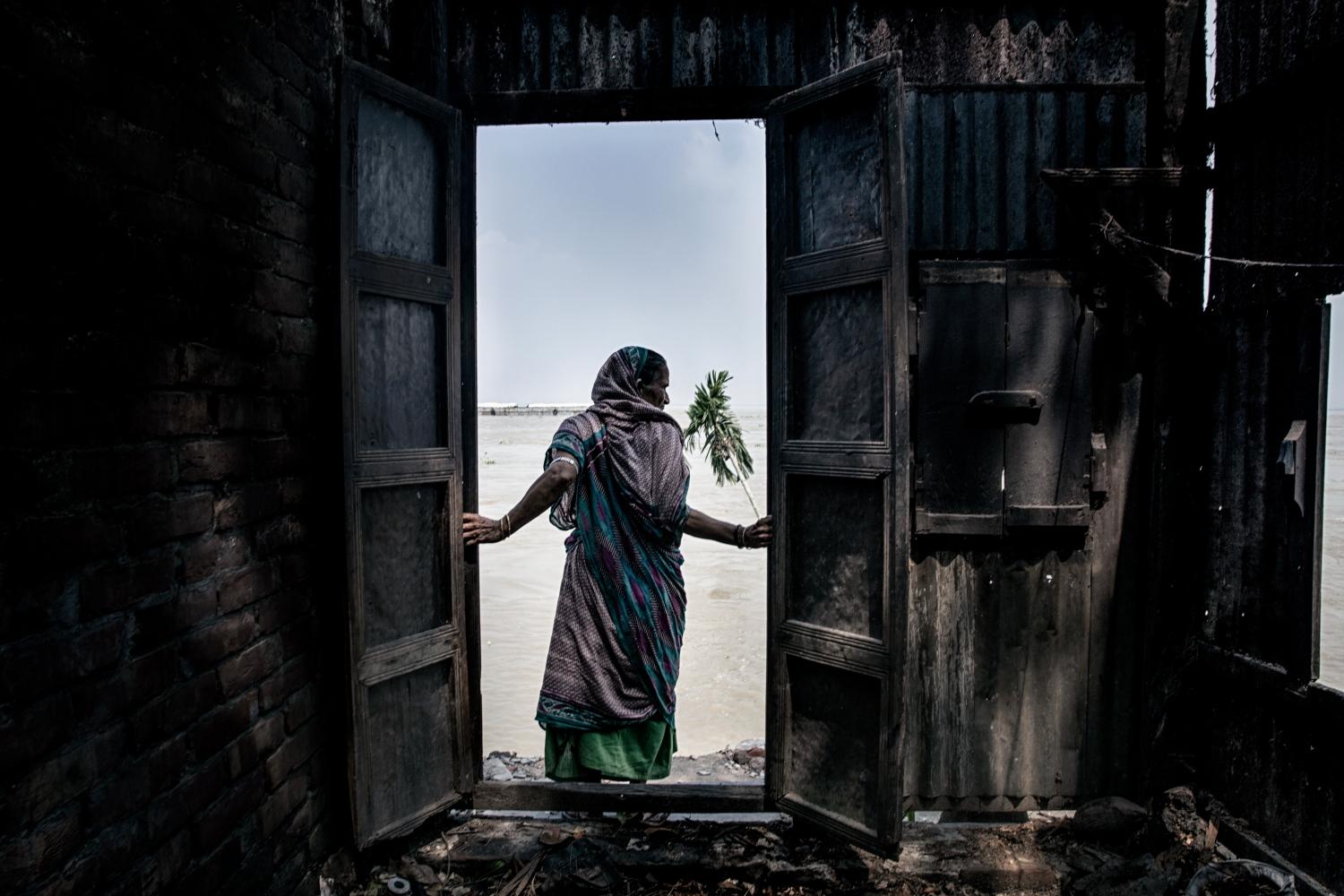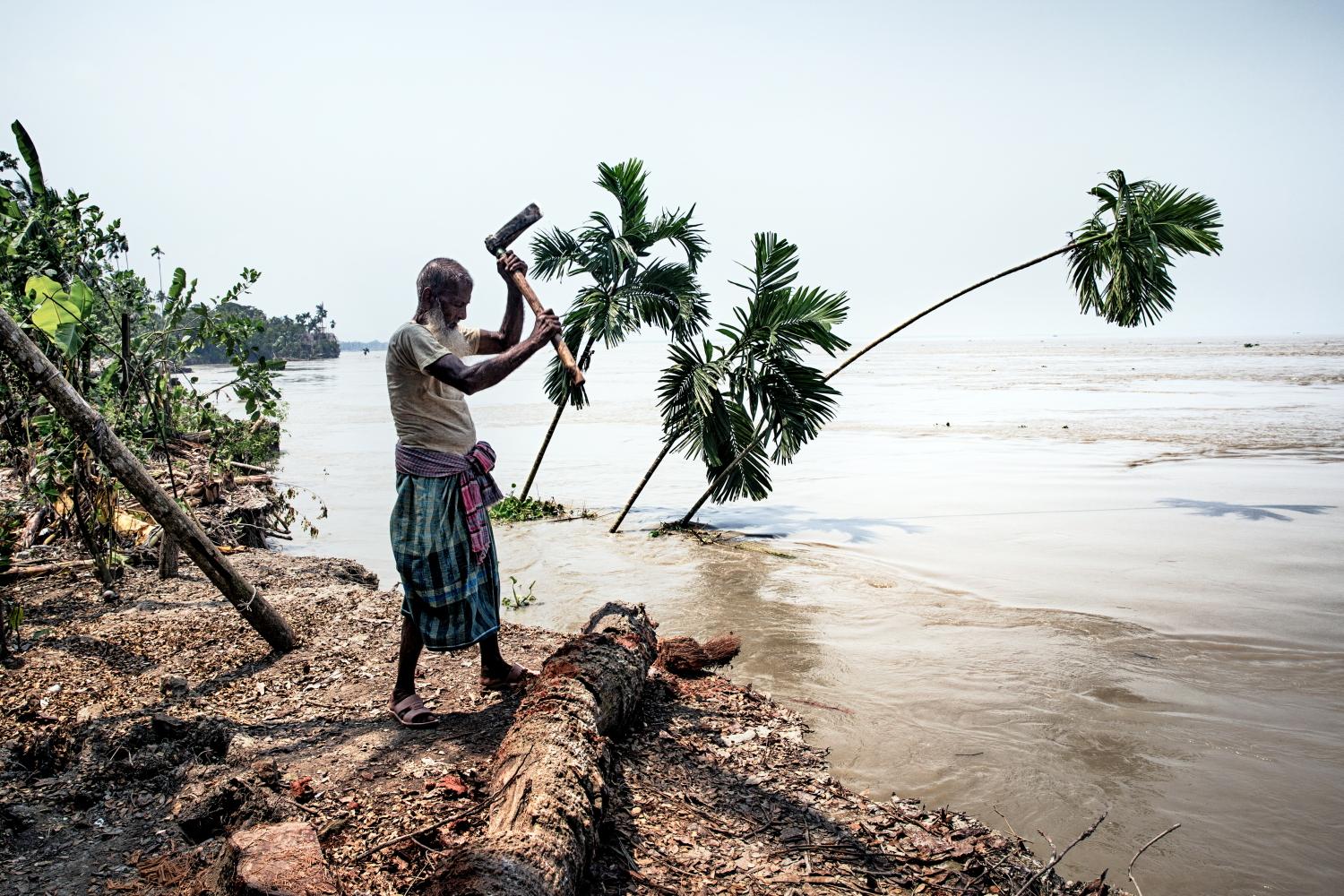Public Project
When Rising Seas Hit Home
Bangladesh loses an estimated 100 square kilometers of land to river erosion ever year. Cyclones, storms, flooding were always a part of life, but now come more often, are less predictable and more powerful. In Khulna, Mongla and Satkhira, and on the island of Bhola, and other parts of southern Bangladesh, families are adjusting to the challenges natures presents. Bangladesh - As one of the world’s most densely populated countries, situated over the large delta where three of Asia’s biggest rivers - the Ganges, Brahmaputra, and Meghna - meet, Bangladesh feels the effects of a changing climate intensely.
This is impacting life of women and children most. Increasing child marriage in coastal areas, teen pregnancy and human trafficking are clear sign of danger which is direct impact of climate change. Women have migrated to the capital Dhaka and other cities further inland, which has caused the population in these cities to swell and living conditions to deteriorate. One of the biggest impacts for families in southern Bangladesh is the increasing salinity of the water. What was previously fertile farmland is now unfit for growing food, and water that was once fit for drinking has become salty. This leads to extreme poverty.
But how much Bangladesh is contributing on this global climate crisis? The irony is there are the people they are impacted most but actually contributing the least to the climate change. Despite being one of the countries most affected by climate change, Bangladesh contributes very little to the process. It emits on average 0,4 tonnes of carbon dioxide per person each year, compared with 7,5 tonnes per person in Europe, 6 tonnes in the Middle East and a world average of 4,9 tonnes, according to World Bank. The sea levels have risen bringing salty water and causing the disappearance of islands. In many places, life as people knew it is no longer the same and they do not know what future will bring for them. Little by little, the country crumbled into the water.
10,107















